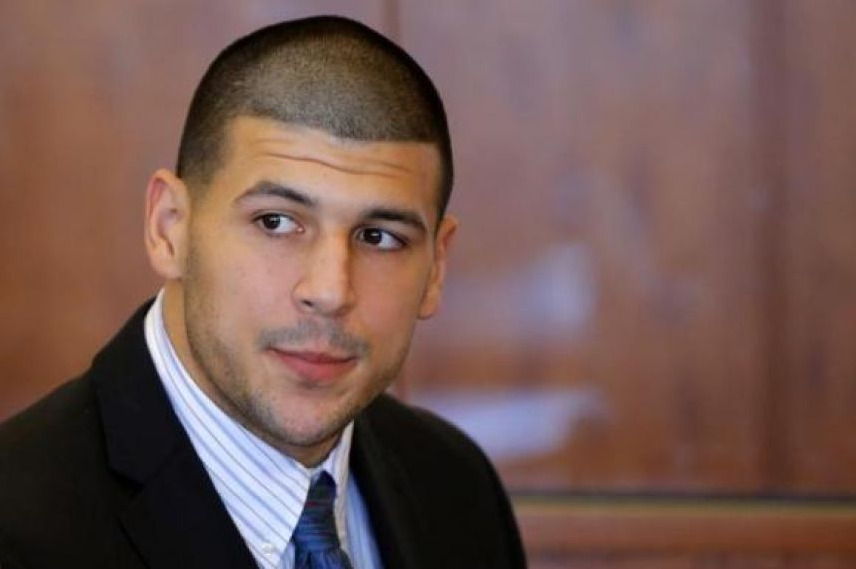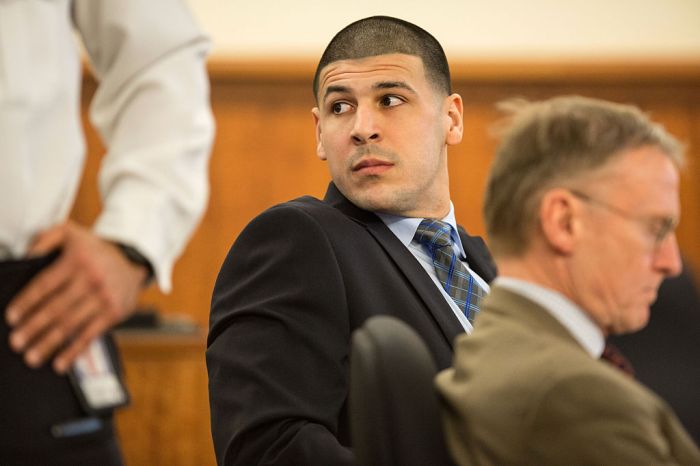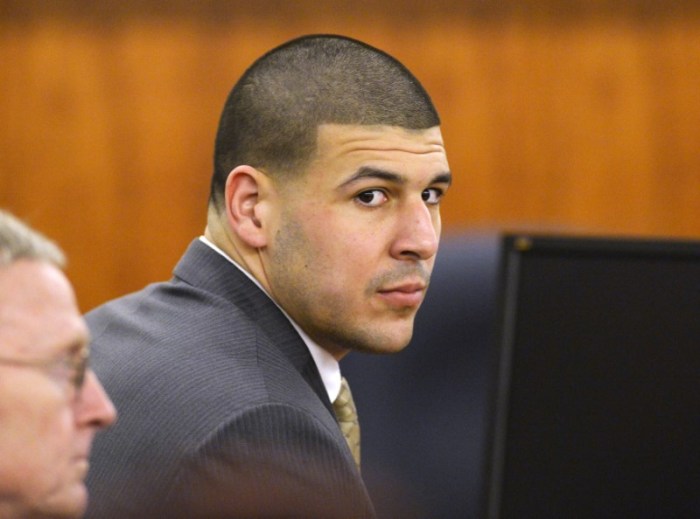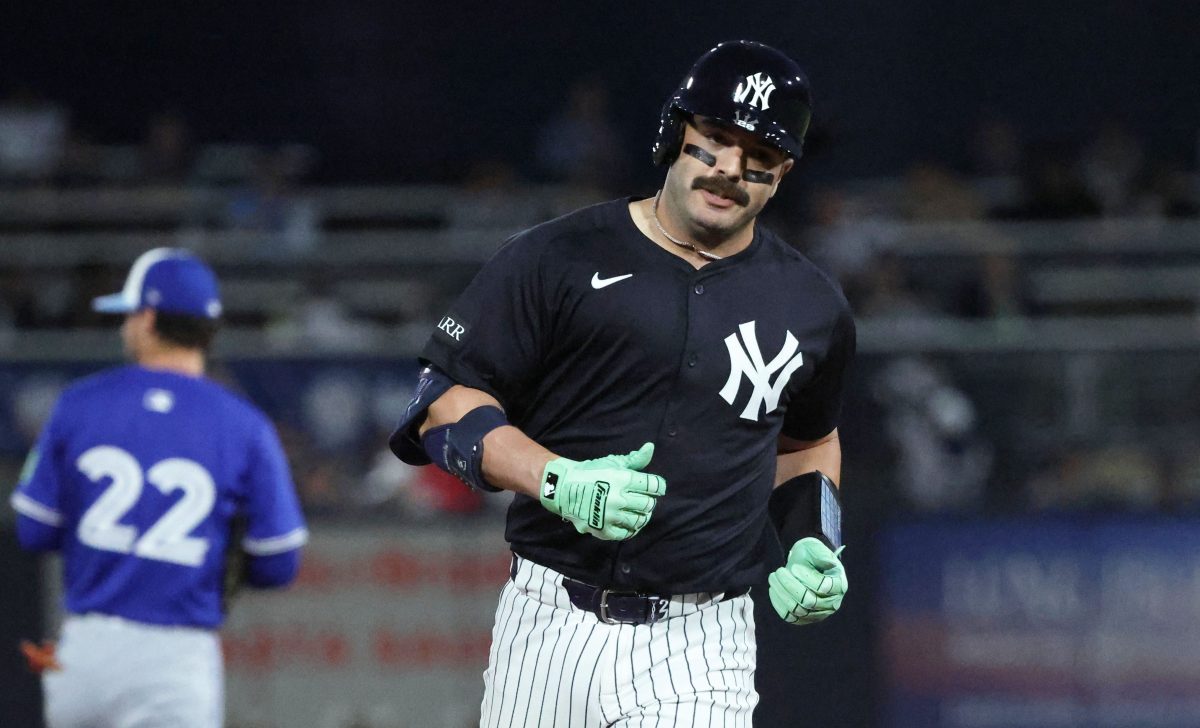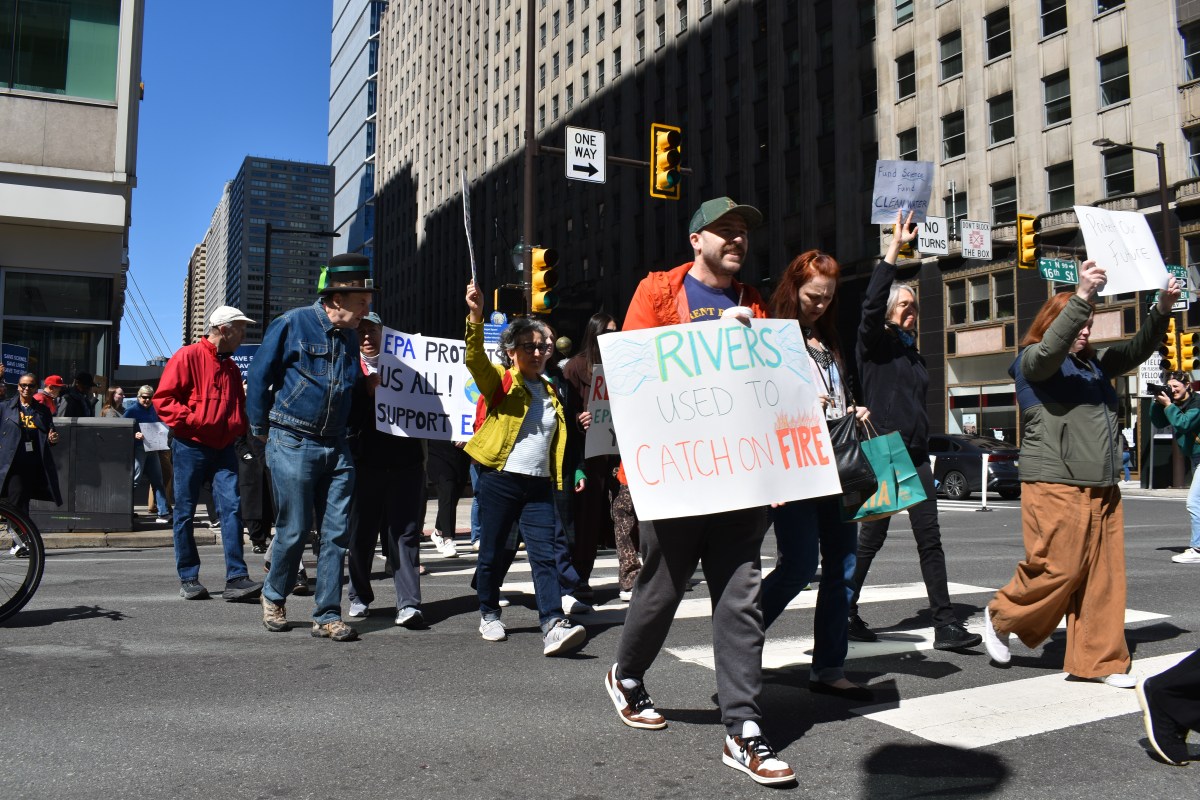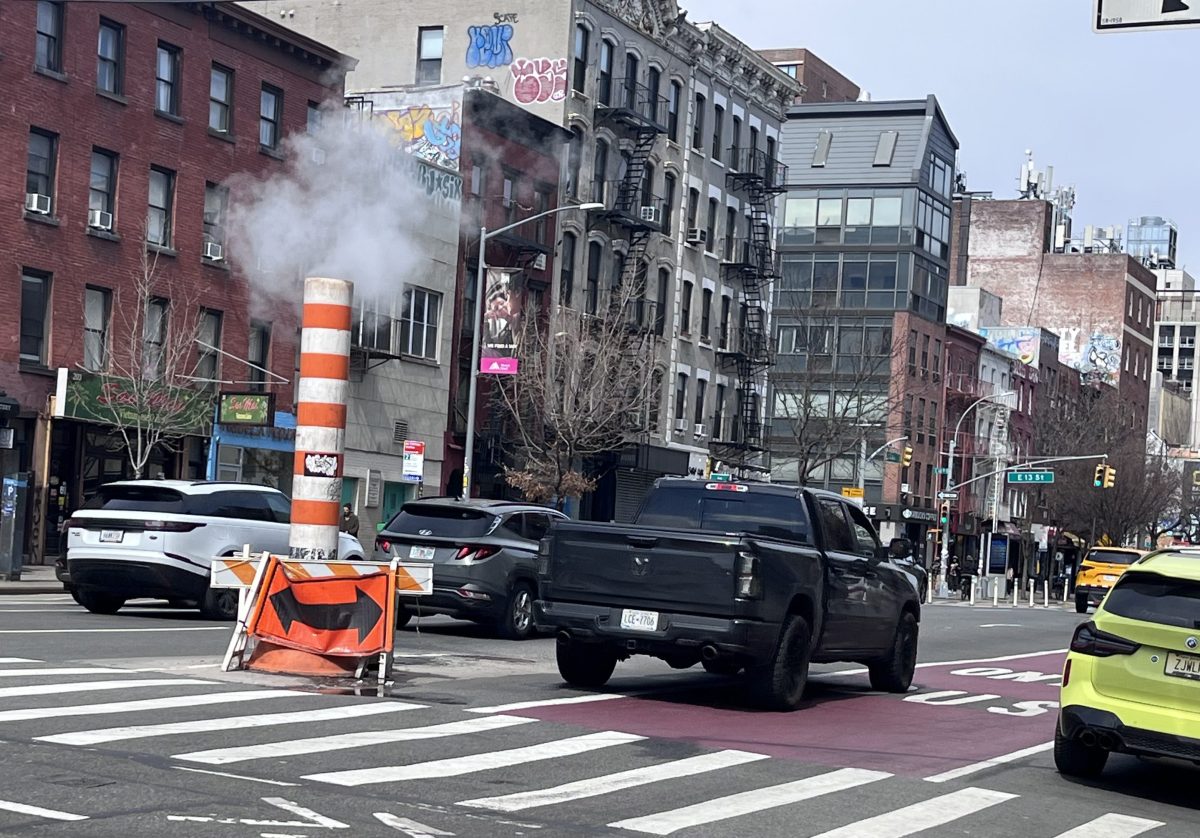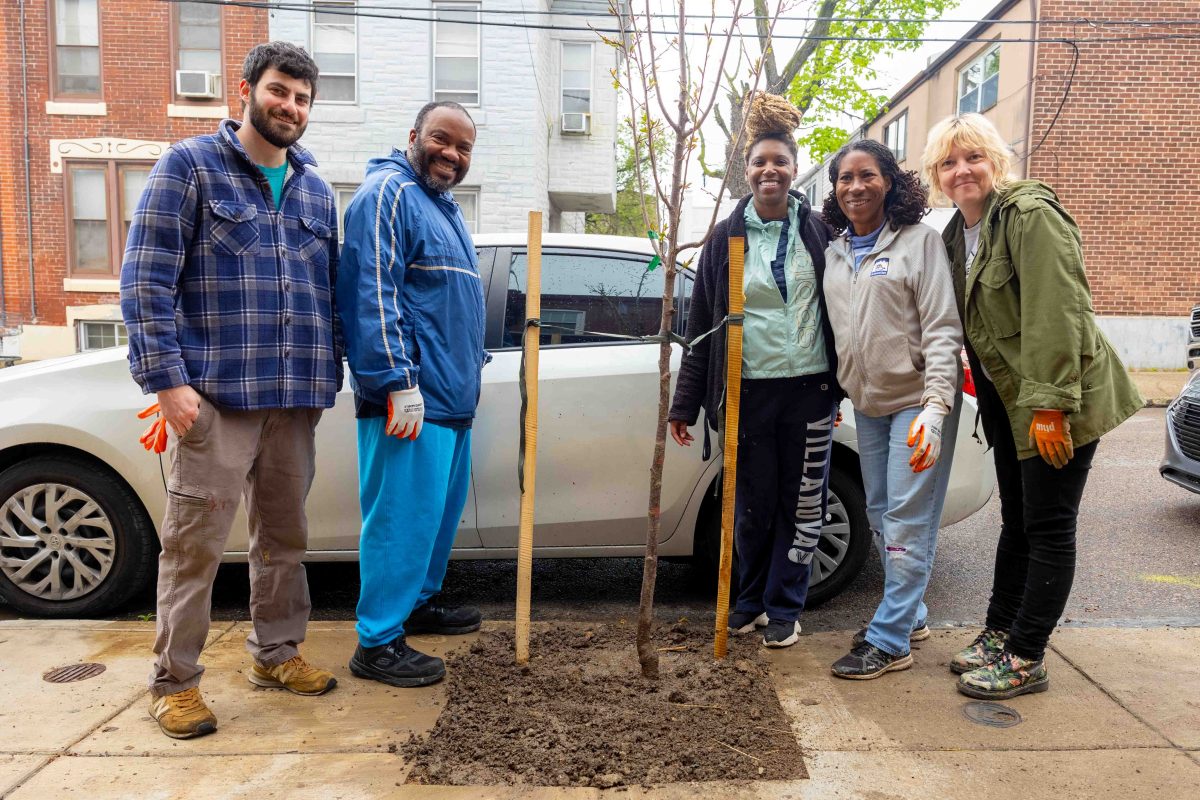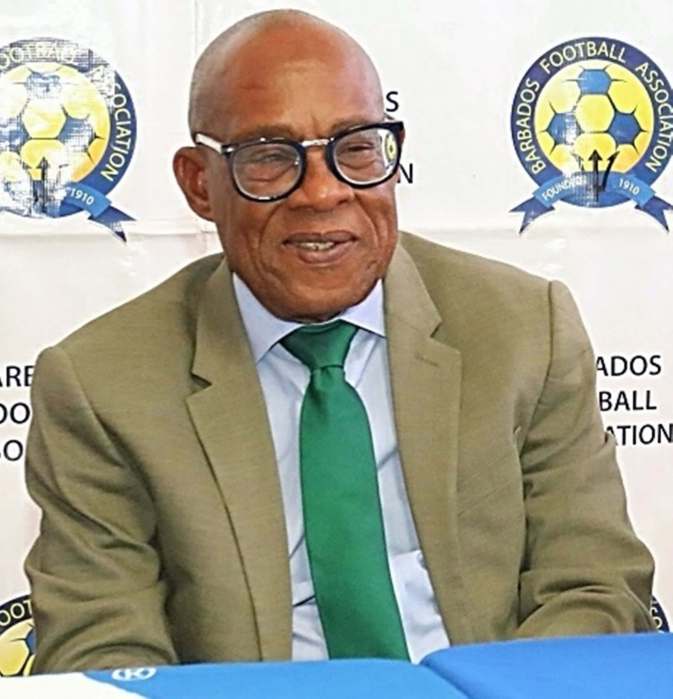Updated 3:04 p.m. April 25, 2017: Lawyers for ex-Patriots tight end Aaron Hernandez are asking Massachusetts’s highest court to vacate his murder conviction for the 2013 killing of Odin Lloyd now that he is dead.
A spokesman for the Bristol County District Attorney’s office said defense lawyers filed the motion to vacate the conviction Tuesday, and indicated prosecutors would oppose the motion.
“We’ve been reviewing the motion and plan to file an opposition within the week,” Gregg Miliote, communications director for the Bristol County district attorney, said.
Hernandez hanged himself in his cell at a maximum security prison in Shirley on April 19, less than one week after he was acquitted of a 2012 double homicide outside a Boston nightclub. He was serving life in prison for his previous conviction. Hernandez left behind three suicide notes, which a New Bedford judge ordered be released to his family Monday — the day of Hernandez’s funeral, which was held in Connecticut.
Courts in Massachusetts have said when a defendant dies before an appeal for their murder conviction is heard, that the conviction is vacated. Hernandez’s appeal had not yet been heard by the courts.
Origninally published April 19, 2017: Aaron Hernandez’s suicide will have some dramatic legal ramifications — experts say the former NFL star’s murder conviction for the 2013 killing of Odin Lloyd will be vacated.
Hernandez was found guilty of murdering Lloyd in 2015 and sentenced to life in prison. In Massachusetts convictions of this kind are automatically appealed before the state’s highest court, but since Hernandez died before that appeal could go through, a little-known legal loophole will get him off postmortem.
“Whenever someone dies during an appeal of their criminal case, the conviction is eventually vacated. The reason for that is the way the law looks at it, you had an appeal going for you and for all they know, the appeal could have found you innocent,” said Peter Elikann, a Boston-based criminal defense lawyer.
The legal “technicality,” as Elikann puts it, is called the Abatement Doctrine and allows prisoners to quite literally die to get away with murder. If a convicted murderer suffers an untimely death or commits suicide as in Hernandez’s case prior to exhausting their appeals, the conviction is automatically vacated.
Hernandez isn’t the first high-profile murderer to have a conviction tossed due to the Abatement Doctrine.
John Salvi, who was convicted of killing two abortion clinic workers and wounding five others during a shooting spree in Brookline in 1994, had his convictions vacated after killing himself in prison two years later.
Father John Geoghan, a Catholic priest convicted on child molestation charges and known as a key figure in the clergy sex abuse scandal that mired the Boston Archdiocese, also had his convictions vacated after he was beaten to death in his cell in 2003 at the same Massachusetts maximum-security prison where Hernandez died Wednesday.
But Elikann said the vacating of convictions isn’t looked upon as innocence.
“Even though the conviction is vacated, it’s not really looked at as vindication — it’s a very narrow legal loophole,” he said.
That doesn’t mean it won’t create problems for the family of Hernandez’ victim, Odin Lloyd, said former President of the Massachusetts Bar Association David White.
Lloyd’s family has filed a wrongful death suit against Hernandez and typically when there is a guilty verdict, a plaintiff can use that as evidence in a civil case — called collateral estoppel. Since the former Patriots player’s conviction will be vacated, the family will have to once again prove Hernandez was responsible for Lloyd’s death.
“Now that the conviction will be vacated, the family of Odin Lloyd has lost their collateral estoppel claim and they will have to start from scratch to prove he is guilty,” White said.

